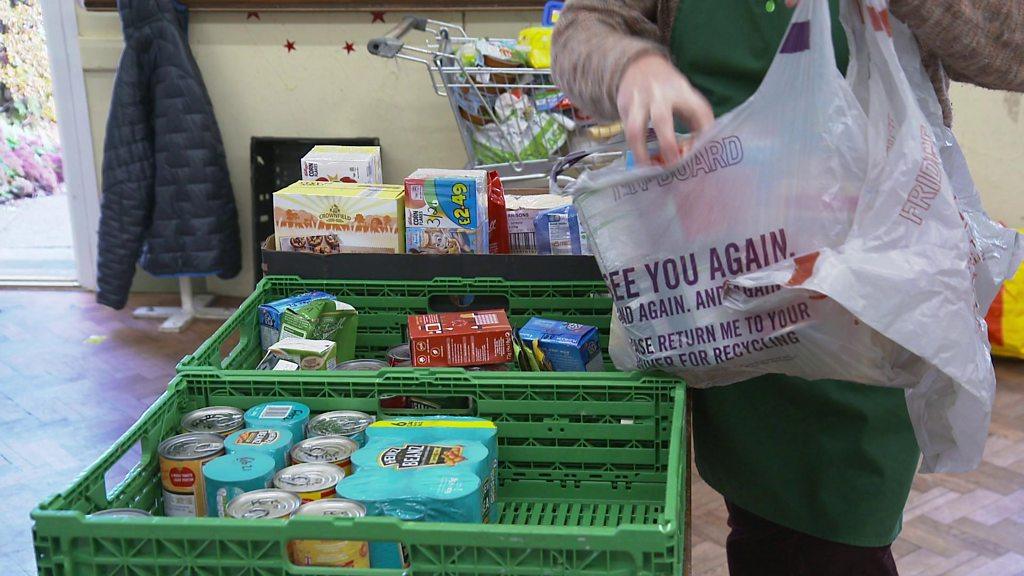Food banks: Record 2.5m food parcels given to UK families
- Published
- comments
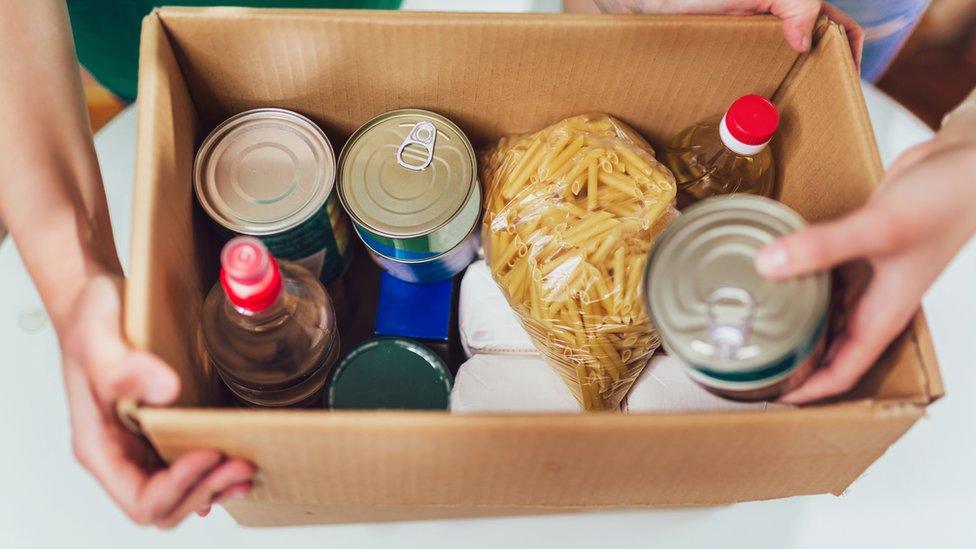
More than 2.5 million emergency food parcels were sent to families in need in the last year according to a new report.
The new findings come from a report by the Trussell Trust, a charity which runs food banks across the UK.
Food banks are places where people can go to get food and other essential items for free if they don't have enough money to buy them.
The new report shows that between April 2020 and March 2021 more than 2.5 million emergency food parcels were sent out to families - with 980,000 of them going to children. That works out to almost two parcels every minute.
The charity is urging government officials to take action and commit to making a plan which will end the need for food banks in the UK.
What are food banks and why do people use them?
Find out more about how food banks help people here.
Food banks are a bit like supermarkets, but everything is free. Families can visit food banks if they don't have enough money to buy food.
A food bank provides people with everyday items like pasta, tinned food and cereals. They also give out other essential items like toilet paper, soap and shampoo.
Most of these items are donated by members of the public.
People who organise food banks will often ask for the items they need to be donated - for example, they will say if a particular food bank is short on tinned food or shower gel.
What is the current situation in the UK?
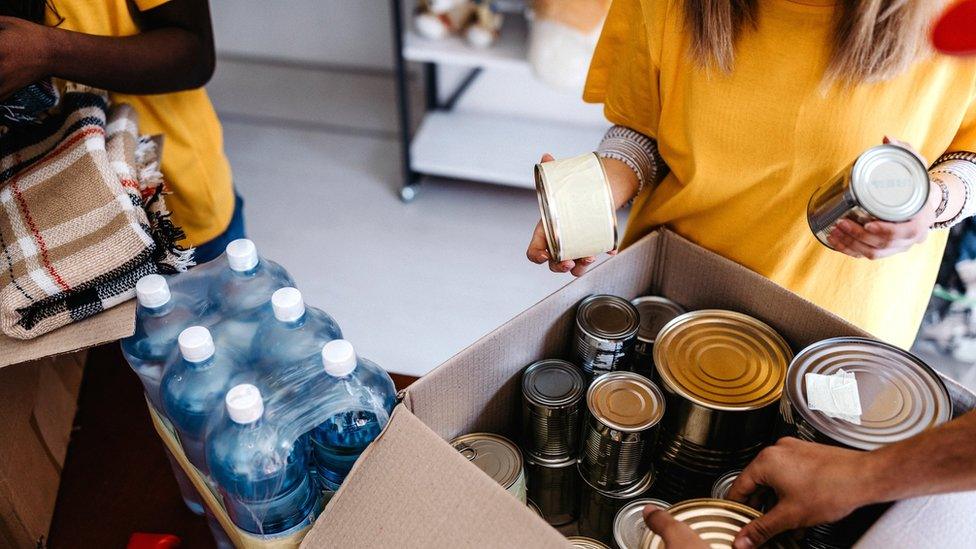
According to the Trussell Trust, the number of people using food banks between 2020/2021 has increased by 33% compared to the previous year.
The charity has said that the need for emergency food parcels is increasing each year, and that this is the first time more than two million food parcels have been given out.
However, these figures could be much higher, as they are from just one charity. Many other independent community food banks and charities also help people in the UK.
One of the main reasons why there has been a big increase in the need for food parcels, is due to the coronavirus pandemic.
This is because during lockdown some adults lost their jobs, or had job insecurity, meaning they had less money to spend on things like food.
"This pandemic has shown the unexpected can hit suddenly, but we know when we push for change, united by our desire for justice and compassion, the government has to listen and act. " said Emma Revie, the chief executive of the Trussell Trust.
What has the government said?
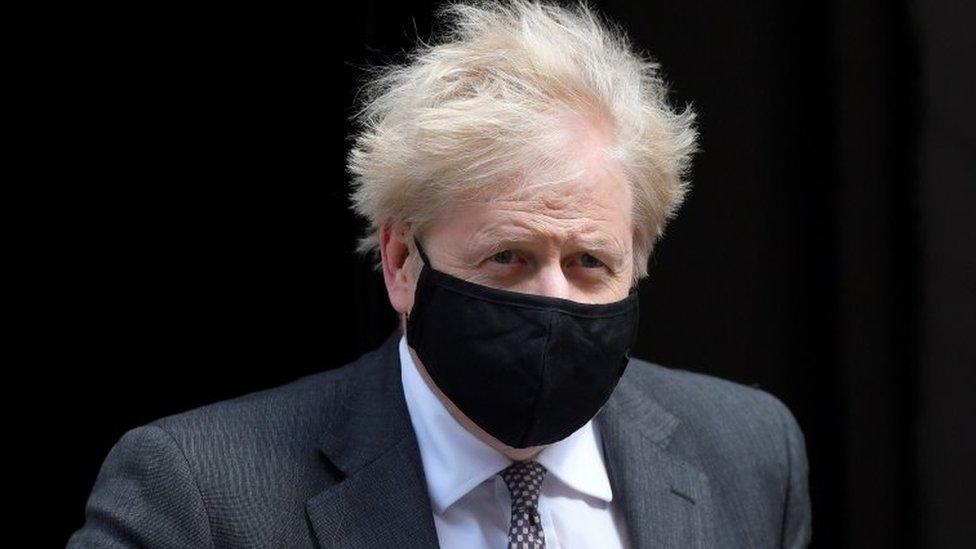
Prime Minister Boris Johnson (pictured) said he would pledge £400 million to help families throughout the winter
A government spokesperson told Newsround: "We are committed to making sure that the most vulnerable in our society are protected and we've put in place a strong package of support to ensure children and their families do not go hungry during this pandemic."
They also said they would pledge up to £400 million to support vulnerable families over the Christmas holidays and beyond, last year.
As well as this, said they would pledge £16m to "provide immediate support to frontline food aid charities and £220 million to the Holiday Activities and Food programme."
- Published3 June 2020
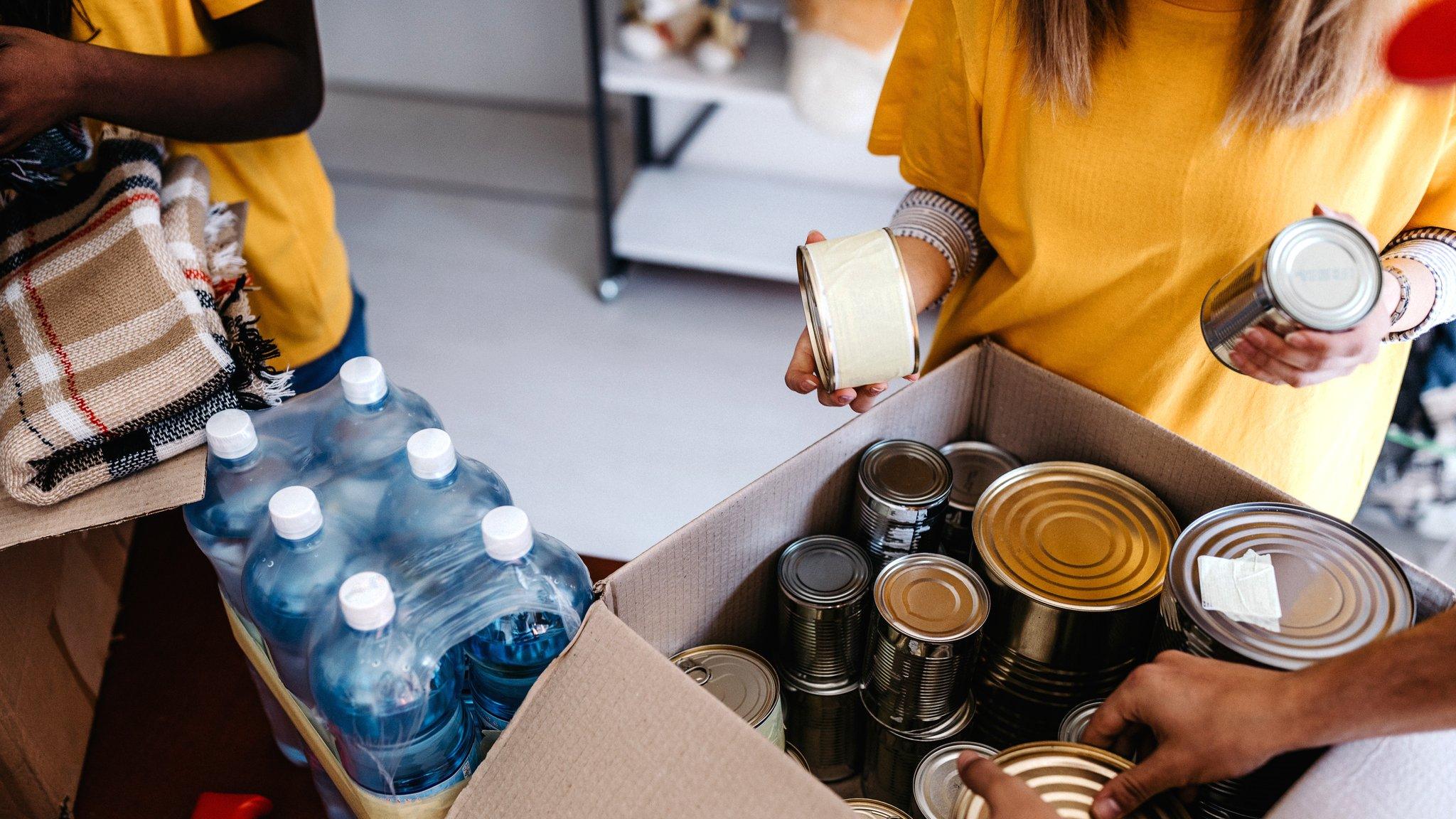
- Published12 November 2020

- Published12 November 2020
